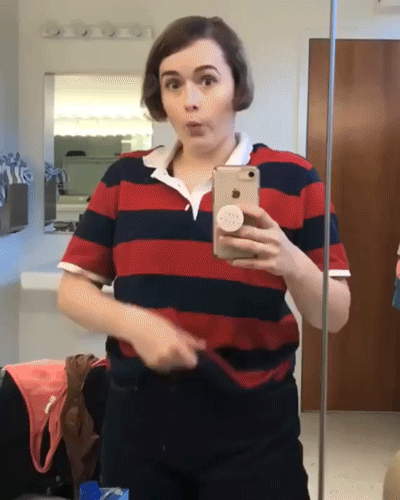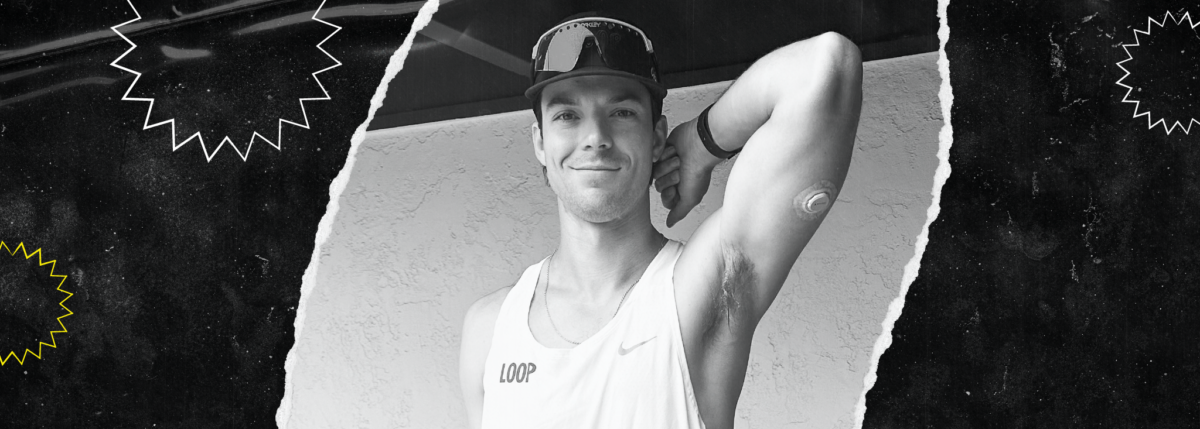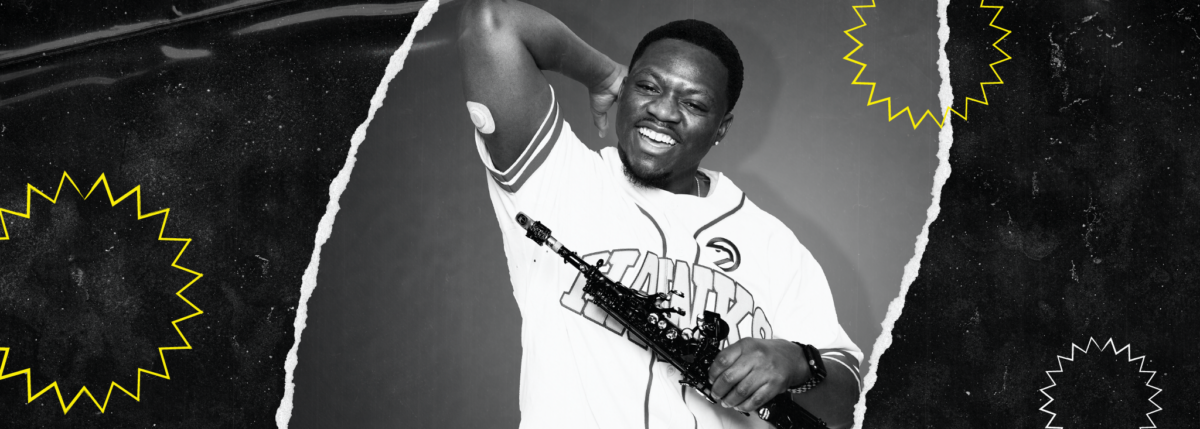Caitlin Kinnunen: Type 1 on Broadway
Written by: Todd Boudreaux
7 minute read
November 15, 2018
Caitlin Kinnunen has been acting since she was 3 years old, and living with type 1 diabetes since she was 8. In the upcoming Broadway musical The Prom she plays Emma, a queer teenager whose school cancels the prom rather than let Emma attend with her girlfriend. Beyond Type 1 spoke with Kinnunen about The Prom, how she manages her diabetes on stage, the importance of having a strong support system and her aspirations for the future.
How long have you known that you wanted to be an actor?
Acting has been part of my life forever. I started taking classes and doing summer camps in theater when I was 3 years old. I did my first professional show when I was 11. And then I moved to New York to make my Broadway debut when I was 16, and I am still here now 10 years later. It’s just always been a part of who I am and it’s always been what I do.
Tell me about your move to New York
I moved out here with my mom. So my family is me, my mom, my sister and my dad. Me and my mom moved out here because we had about two weeks’ notice when I first moved out here. They were like, “Hey, we want you to be in Spring Awakening, but you have to be here in two weeks.” And we were like, “Oh, that’s fast but okay.” And my parents are the most incredible, supportive, caring parents, and they said, “If we say no to this opportunity, it will never present itself again.” So they jumped two feet in right away and said, “Okay, let’s do this.” And so my mom and I moved out to New York. My sister came out a few months later and my parents had a long distance relationship for two and a half years until my mom moved back to Seattle.
Were you ever worried that type 1 diabetes (T1D) might affect your ability to pursue your dream as an actor?
It’s always an interesting question ’cause I get that a lot, and when I was first diagnosed, I was so young that I didn’t really understand what was happening. I just was like, “Okay I’m going to the doctor. Something is wrong but my parents are calm, cool and collected, so I must be fine.” And so, it wasn’t really until later, like I remember starting to freak about it when I was 16, and it really hit me that it was like, oh my gosh, I’m gonna have this for the rest of my life and this is something that I’m gonna have to figure out how to incorporate into theater and into my lifestyle, and it ended up working. But it didn’t really hit me until I was 16 that it was something that I would have to worry about for the rest of my life. So I had a six-year delay of like, oh wait, no, this is real.
How do you manage your diabetes?
I got the pump when I was 10, so there were two years that I did injections. I am currently on a Medtronic insulin pump and then a Dexcom Continuous Glucose Monitor (CGM). I’ve been using the CGM for I think seven years now, and it’s truly life changing. I don’t know how I would do without it. Every once in a while it fails for a day and I’m like, “How did I ever function?” I’d say I check my blood sugar at least twice a day because of the calibration for the G5. But then for the most part, I don’t check it more than that. Every once in a while if like the Dexcom is ever off a little bit, I’ll check maybe five times a day, but that only happens once every six months probably.
What is it like managing your diabetes while on stage?
Doing a show with diabetes comes with all these weird things that you have to deal with, like where do you put your pump? And so for shows what I do usually is I have a pair of Spanx, that I have them sew in two pockets in the front of the Spanx and so I can slide my pump in there and then if I need to I can slide my CGM receiver in them. And they just fit right underneath my chest and tied into Spanx. And then the Spanx also hold my mic, so I got all of these wires coming out. I’ve got my insulin pump in the front and then two mics in the back and just all sorts of tubing and craziness.
And then I’ve got fruit snacks hidden back stage. And then on some of the set pieces, there’s a moment in the show when I’m stuck on stage behind the set piece for 15 minutes and so I have supplies back there in case I ever need them. And I just like open a little drawer and they’re right there, and I’m just sitting behind the set piece eating fruit snacks.
And then throughout the show, as far as blood sugars and stuff goes, on The Prom I have a great stage management team who have been amazing and so supportive of me having diabetes. They all have the Dexcom share app on their phones and they also have my blood sugar on their watches, so I can truly walk off stage and ask any of them, “Hey, what’s my blood sugar?” and they will know it.
Have you noticed any trends?
Oh gosh. I haven’t been able to figure out trends yet. We’ve been in previews for a week now, and it has been a very interesting process of figuring out what my blood sugars are doing, and they haven’t even figured it out yet, so every day is a new adventure. Right now it’s like I’m either way too high or way too low. I have not found a happy medium for my show yet. Most of the time I’m pretty calm before a show. But every once in a while I’ll have a show where I get really nervous and that’s where it’s like, “Oh man, why do you gotta do that blood sugar?” But it’s because of the adrenaline spikes crazy high. But again, it’s so hit and miss that I’m like, “What’s happening?” So hopefully once we have run a little longer I will be able to actually see trends and make changes.
Will this be your first time as a lead on Broadway?
Yeah, it will be. I’ve done two other Broadway shows, but I had relatively small parts in each of them. And now I am one of the nine leads in the show. And I get to take the final bow in a Broadway show, and that’s really overwhelming and exciting.
What is different about being the lead in a show?
As far as diabetes management and dealing with being a lead in the show, it just takes a lot more pre-planning. There are moments where I am on stage for huge stretches of time, and hopefully my blood sugars will be fine, and they usually are. But every once in a while something goes wrong, there’s some unexpected thing. If I’ve done too much insulin for my dinner, before the show, then my blood sugar is plummeting when I don’t expect it to, so you have to think of those things ahead of time and say, “Okay, well this is the stretch that I’m on stage for 20 minutes without any breaks. What can I do if something goes wrong?” And it’s the things like putting fruit snacks in my bedroom drawer and hiding them in my bag and putting them in my costume pockets so that I always have access to something even if I can’t get off stage.
How important is your support system when living with T1D?
Having a strong support system is probably the most important thing, especially for me because everyone has a different experience with diabetes, it’s such an individual disease. But for me, it’s something that creeps up on me a lot, where it’s like, I’m fine, I’m fine, I’m fine, things are going really well, and then all of the sudden something happens where it’s like my insurance doesn’t cover my supplies any more, I have to find a different pharmacy, my blood sugars are crashing and I’m walking around, and just having the people surrounding me that I do that I know have my back and understand it is so important. Just knowing that they are always there for me and that they have my back takes so much pressure off of me. Yeah I would always need them to be there and I’m so thankful that they always are.
Is your family coming to see the show?
Oh yes. My entire family is coming on opening night and I’m so excited for them to see it because of course they have known about it and seen different iterations of it, but for them to see the final finished product on Broadway, it’s really overwhelming. My dad will cry so much.
Tell me about your history with The Prom
I’ve been involved with this show for four years now. I first heard about it through my agent. She sent me on an audition for this untitled new musical. We didn’t really know anything about it. I went in and auditioned for a different character, and in the room they were like, “Hey, you actually seem more of like an Emma. Can you read for this character instead?” And so I stayed and I read for a different character than I originally went in for and that was kind of that. I ended up booking the lead in the show and we did what’s called a 29-hour reading of it, where you go and you have three days to kind of put the show together and learn the material, and then you present it at the end of those three days for producers.
And then after that, we did what they call a lab, which is kind of the same idea but it’s just an extended process of that, so you have four weeks. You don’t have any special costumes but you’re on your feet walking around and memorizing your lines, and that was in 2015. And then we did the added Prom production in Atlanta in 2016, and that was a full production of the show. And then we just did another lab back in January and February of the show.
What is the show about?
The Prom is about this 17-year old girl who decided to take her girlfriend to her high school prom and the school board finds out about it and they decide to cancel the prom. That’s a story that is based on a few actual events that have happened across the United States where people in these towns want to take their same-sex significant other to school dances and the school boards across the country, they’re saying, no you can’t do that. And they are barring these LGBTQ kids from going to their school dances because of it. So they’ve taken that and then added four veteran Broadway performers who are kind of down on their luck, and in a bad show—so they want to put themselves back in the spotlight—and they say, “Oh, we’re gonna go try to save this girl.” So they go to Indiana and try to save the day and shenanigans ensue, and it’s all crazy. But at the end of the day it’s a show that just tells a story about hope and about acceptance and it has this heart of gold that you don’t expect from this mad-cap musical comedy. So it’s been a four-year journey to get here for me. They’ve been working on the show for about seven or eight years now, but I’ve been with it for four years and it’s just an incredible show that I love working on. Everyone involved with it is so amazing and so kind and so talented, and the show itself is really lovely.
What has changed in your lifetime in the world of Type 1 diabetes?
How much has changed is insane. I was the first person that my insurance company put on a pump that was under the age of 16, and my parents had to fight to get the insurance company to cover the pump. They didn’t think it was safe for children to be on it, and now infants are on it. It’s crazy how far things have come. Technology has made a huge impact in my life as a person with diabetes. I was what they used to call a very “brittle” diabetic. They have since stopped using that term. But my blood sugars were all over the place always, and so truly having a CGM has changed the way I function with diabetes. It’s taken my A1C’s down from the upper sevens to the lower sixes, and it gives me such peace of mind that I can just look at my phone and say, “Oh no, I’m okay. I don’t need to worry about this.” That alone has completely changed my life.
When I was first diagnosed, it was “well diabetes works one way, this is the way, if you are not in line with that, you’re doing it wrong and we don’t know how to help you”. And now it’s very much “diabetes is completely different for everyone and we have all of these different things that we can help you with. Pick your option and we’ll figure out what works best for you so that you can live your best life with this disease”. And that’s just really refreshing and it makes it like—I don’t wish diabetes upon anyone—but I feel so much better knowing that if people are diagnosed with diabetes now, they will lead a calmer and healthier life because of where we are medically speaking and with technology.
Now that you’re the star of a Broadway musical, where do you go from here?
I think I just want to keep doing good important work, whether that is on film, on TV, in the theater, whether it’s a musical, or a play, I just want to be able to work on shows that mean something to people and tell good stories. I think that’s my goal in the next couple of years, is just continue doing good solid work… as boring as that sounds.


Author
Todd Boudreaux
<a href="https://beyondtype1.org//leadership/todd-boudreaux/">Todd</a> was diagnosed with type 1 diabetes in 2000, and has been unofficially advocating for type 1 diabetes (T1D) ever since. Before joining the team at Beyond Type 1, Todd wrote and produced television shows for Discovery Channel, Travel Channel and Animal Planet. When he’s not in the office, you can usually find him at a baseball game, traveling, or drawing on his Etch A Sketch. You can also <a href="https://www.instagram.com/toddboo/">follow him on Instagram.</a>
Related Resources
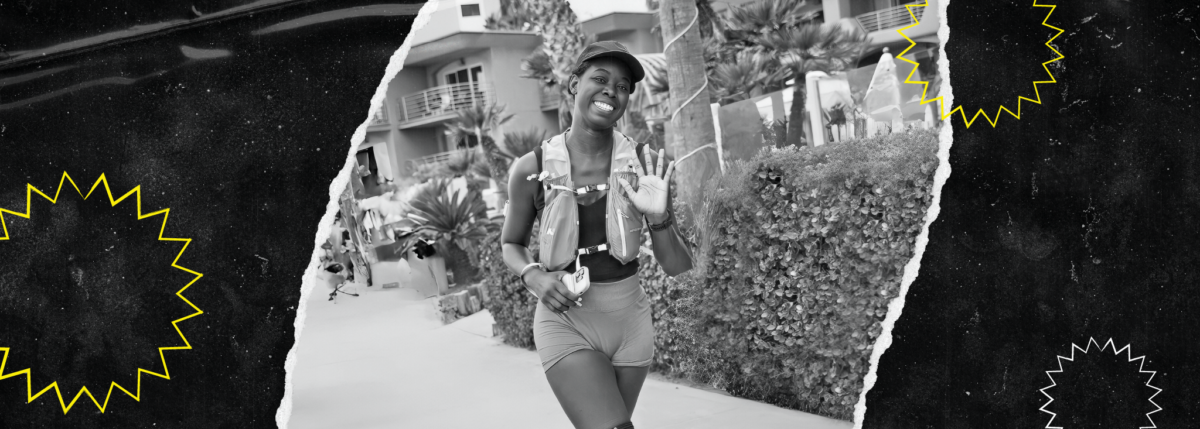
Danica Collins not only prepared for one of the most challenging physical events of her...
Read more
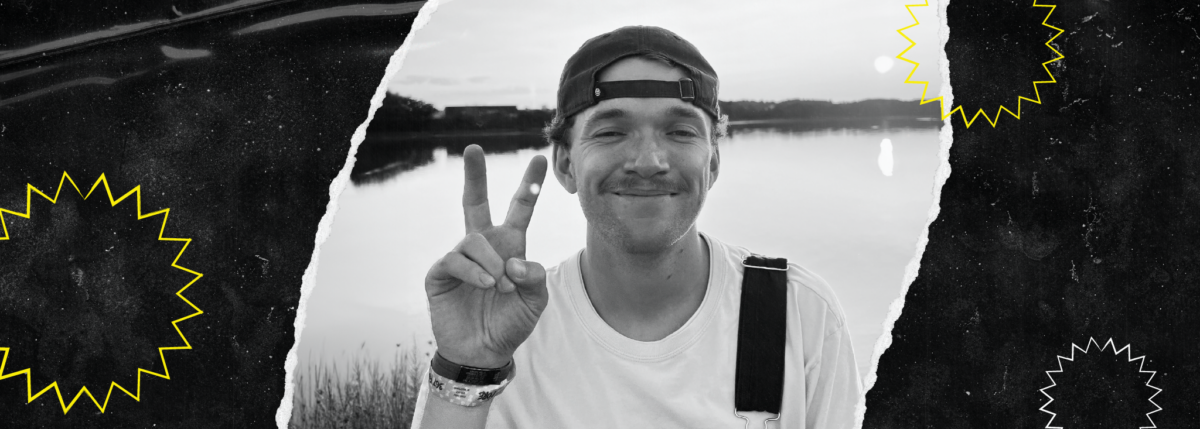
Beyond Type 1 is spotlighting inspiring athletes with type 1 diabetes as they prepare for...
Read more
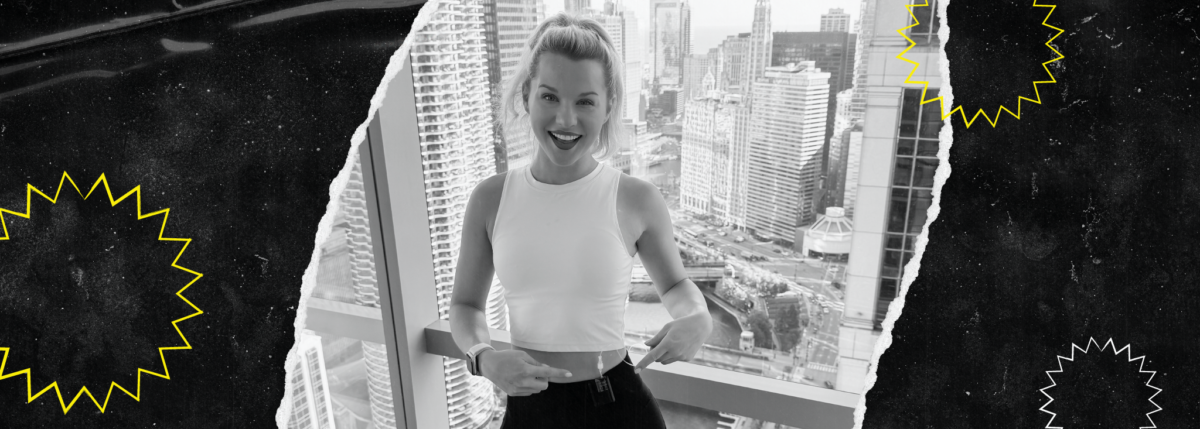
On November 3, 2024, Taylor Rindfleisch of Chicago laced up her running shoes for the...
Read more
